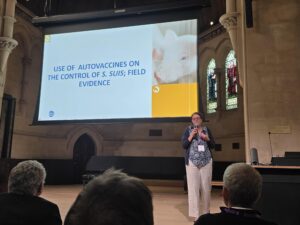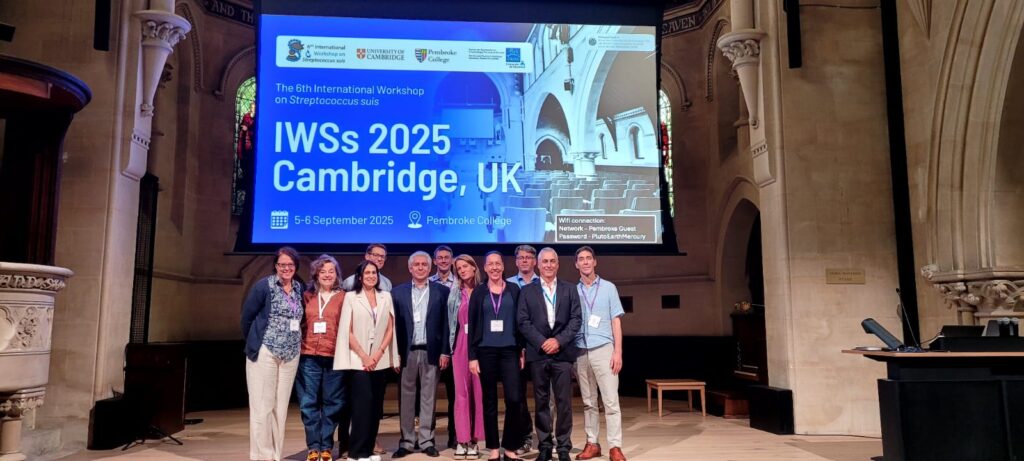Three-quarters of farms producing weaners in the UK have experienced Streptococcus suis disease in the past year, visitors to the sixth International Workshop on the widespread pig disease heard this month.
The event took place at Pembroke College, Cambridge on September 5 and 6, co-organised by Cambridge Veterinary School and the University of Montreal.
Widely recognised as an entrenched, difficult to control, bacterial challenge for farmed pigs in the UK and globally, Strep suis is a serious zoonotic disease in some parts of the world, including south-east Asia where there is concerning emergence of multi-drug resistance.
The meeting focused on the factors underpinning the emergence of more virulent strains and antimicrobial resistance.
UK farm impact
The timeliness of the event was underlined by Cambridge University’s Professor Dan Tucker, who shared data from an impact analysis conducted across many of the leading UK specialist pig veterinary practices.
This indicated significant impacts on post-weaning and also pre-weaning pigs, in line with data published in Europe (Niela 2021).
Notably, the survey found that more than 75% of farms producing weaners have experienced Strep suis disease in the past year, with more than 50% of batches affected to some degree on those farms. Mortality due to Strep suis averaged 1.2% in affected batches.
A notable prevalence of disease was also reported on farms producing pre-weaned pigs, but the disease was far less significant in the finisher stage.
Estimates of the economic impact of Strep suis across more than 2,000 production units included in the survey suggested costs of around £1.23/pig produced, with the major drivers being mortality in weaning and pre-weaning stages, vaccination costs, and group level antibiotic treatment in the post-weaning phase.
Strep suis disease was shown to be driving high levels of antibiotic usage, especially in the post-weaning period.
Diversity of Strep suis

Dr Paloma Suárez Ferreiro, Ceva’s marketing director – autogenous vaccines Europe, discussed the high diversity of Strep suis isolates from diseased pigs in Europe and their effective management through autogenous S. suis bacterins.
“The objective of the presentation was to share a study that looked at 251 Strep suis isolates originating from seven European countries,” she said.
“The results showed that the most prevalent serotypes were Serotype 9 and Serotype 2. In the study, they analysed 87 virulence genes and almost every strain had at least one of the main genes.
“Antibiotic resistance testing revealed that 85% of the strains carried at least one resistance gene, making treatment increasingly challenging, while only about 15% showed no resistance.”
The presentation also addressed whether S. suis autogenous vaccines could be considered an effective tool for disease prevention.
It was pointed out that the composition and the way that the autogenous vaccines are produced is key to obtaining optimal efficacy, with different results depending on the manufacturer.
Dr Mandy Nevel, from AHDB, also spoke at the conference, duscussing antibiotic use in pigs in the UK – and progress, solutions, and barriers to tackling the global AMR challenge.
Ceva Animal Health supported the workshop as a Gold Sponsor. With speakers from 12 countries and over 130 attendees joining the discussions, it said this was a very timely opportunity for researchers, veterinarians, animal health companies and policy makers to dive deep into the current evidence supporting pathogenesis, epidemiology, diagnosis and surveillance, and finally the crucial topics of therapeutics, AMR and vaccine development.




